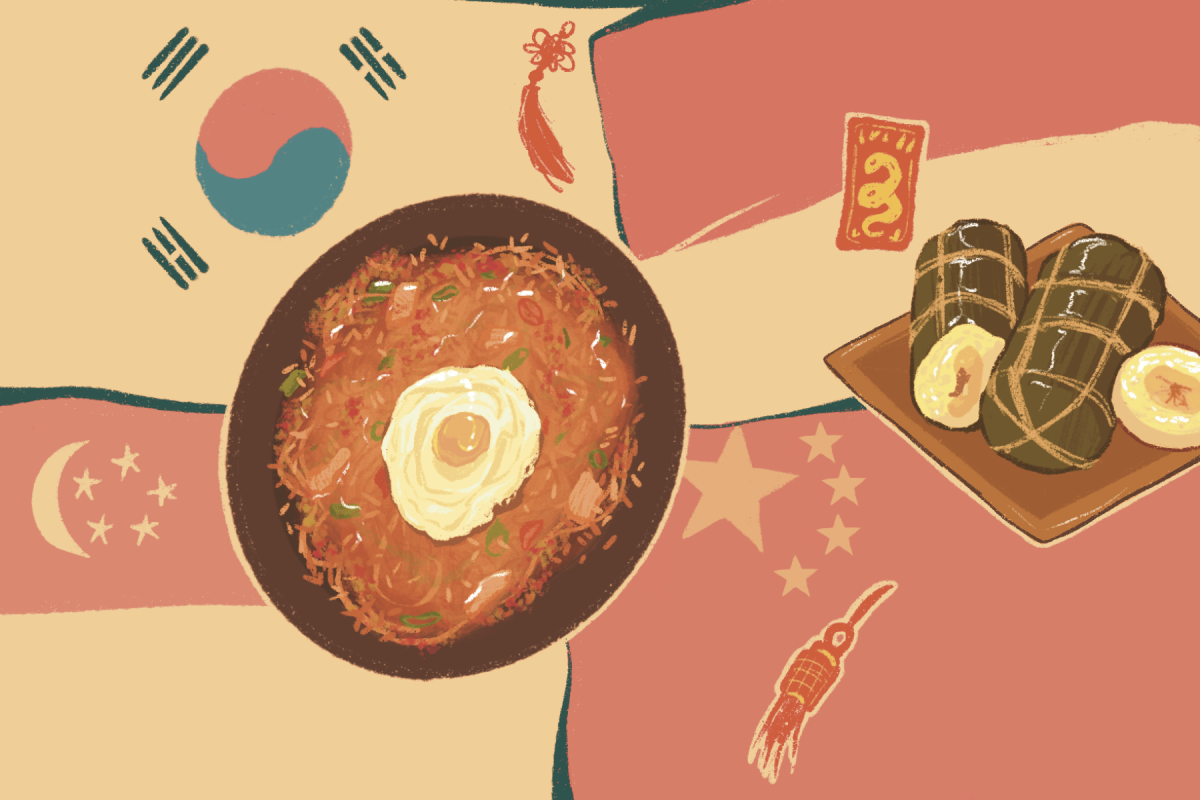On Jan. 29, millions of people around the world welcomed the Year of the Snake. While the holiday originated in China, many other countries celebrate Lunar New Year, especially those with a large Chinese diaspora or that were heavily influenced by Chinese culture in ancient times. However, celebrations in countries like Vietnam, Korea and Singapore have taken on their own unique flavor and have become integral holidays in both local and diasporic cultures.
While Lunar New Year is traditionally celebrated with family, NYU does not offer time off for the holiday, making it difficult for students to travel home. However, many have found unique ways to engage in new methods of festivity and stay close to their heritage.
China
Steinhardt sophomore Sunny Liang is majoring in global public health and food studies. Liang moved abroad from her hometown of Chengdu, China, to attend high school in Massachusetts and has been in the United States since.
Liang has been away from home for several years, and has grown used to spending the holiday without family. To celebrate this year, she made dumplings with her roommate and watched Chunwan — a Chinese New Year gala show with celebrity appearances, traditional dances, comedy shows and more. While being far from home has been difficult, Liang appreciates the small wins.
“I went to high school in a really small town,” she said. “Coming to New York has been great because now I have access to authentic Chinese food.”
Vietnam
CAS senior Cindy Truong studies English with a specialization in creative writing and a minor in media, culture and communication. Truong is Vietnamese but was born and raised in the United States. Though she spent most of her childhood celebrating Lunar New Year — known as Tết in Vietnamese — in her home state of North Carolina, she recently started traveling to Vietnam for the holiday. This year, she was able to partake in the country’s unique cultural traditions.
“On Tết, everything’s closed and you’re just with your family,” Truong said. “At night when we meet together and have dinner, we play cards for hours. The next day I went to a cafe with my friends and they were playing cards with their friends for like three, four hours, just never ending.”
While not everyone can spend the holiday with loved ones, Truong recommends students still find ways to make the day special, such as cooking their favorite foods or finding others to celebrate with.
Indonesia & Korea
CAS first-year Sua Han is studying economics. Born and raised in Indonesia, Han — who also has Korean heritage — was always immersed in Indonesian culture. Her upbringing resulted in a unique way of celebrating Lunar New Year with her family, where she partook in Korean traditions, such as bowing to elders to receive money in red packets, while eating Indonesian foods like nasi goreng, fried rice with meat and vegetables, and rendang, a spicy, slow-cooked beef dish.
Han said that since Lunar New Year is not an NYU holiday, “I just had a normal day, went to school, and Grubhubbed some food.” However, she made sure to reach out to her friends and family, wishing them well for the new year.
Singapore
Tisch and Steinhardt junior Megan Yi is double majoring in drama and media, culture and communication. As an international student from Singapore, Lunar New Year is the most important holiday for Yi, who always dreamt of holding her own gathering.
“I told myself that the moment I got my own apartment, I would host my own celebration for Lunar New Year,” Yi said.
To ring in the new year, Yi gathered her closest friends for a hot pot dinner in her apartment. One of her favorite Lunar New Year traditions is exchanging fruits for red packet money with elders. She recreated this with her friends, with each person bringing two fruits to exchange for a red envelope filled with chocolate coins instead of money. In place of traditional oranges, Yi told her friends to bring whichever fruit they wanted.
“I’m grateful to have friends who, despite not being Asian, are interested in learning about the culture and participating in the traditions,” she said.
Contact Grace Tan and Sherry Chen at [email protected].






















































































































































